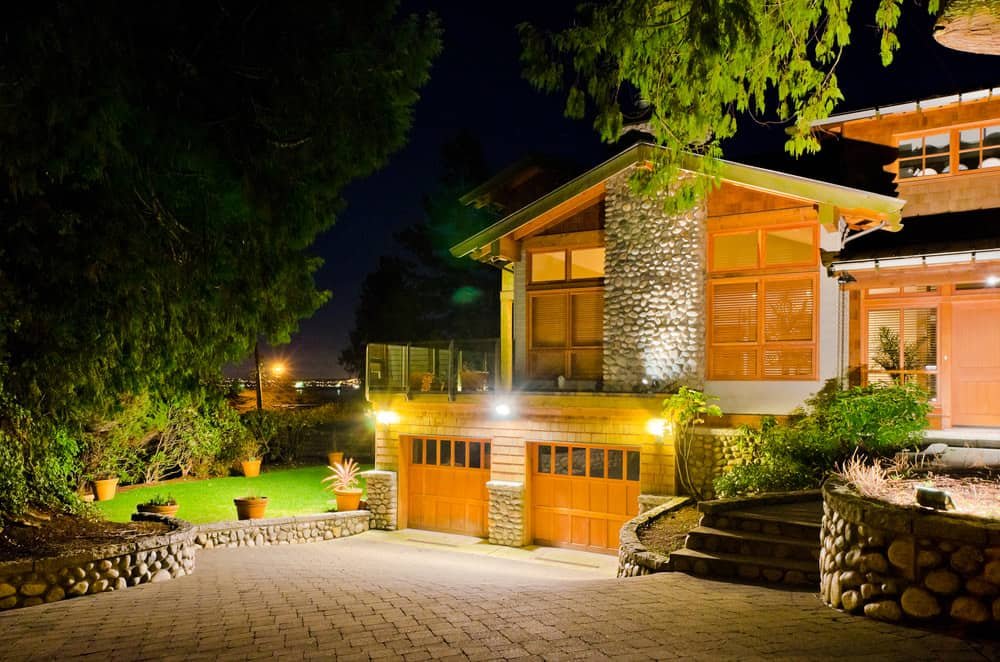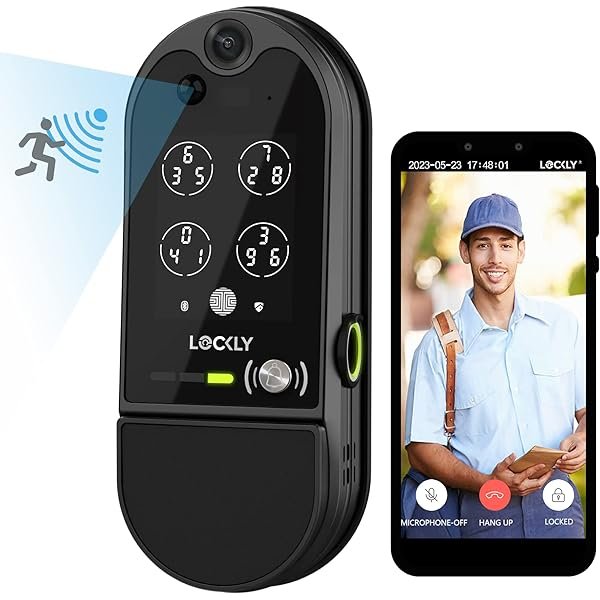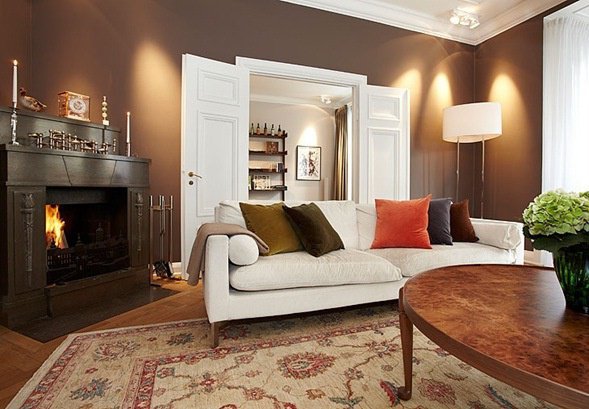
How to Make Your Home Safer Without a Security System 6 Smart Tips
These days, keeping our homes safe is super important. You might think you need a fancy security system to do it, but that’s not true. You can protect your house and family using some easy cheap tricks. Here are six smart ways to beef up your home security without spending much money on a high-tech system.
1. Reinforce Doors and Windows: Your First Line of Defense

Burglars see doors and windows as weak spots to break into homes so these areas need extra attention for better security. Here’s how to beef up these entry points
- Install High-Quality Deadbolt Locks: Unlike standard locks, deadbolts are more resistant to force, making it much harder for intruders to kick in a door. Ensure that all exterior doors are equipped with deadbolt locks. Consider using double-cylinder deadbolts, which require a key to open from both sides, for doors that have windows nearby.
- Add Security Bars and Window Pins: Sliding glass doors and windows can be easy targets if not properly secured. Security bars, which can be installed inside or outside windows, prevent them from being opened even if the glass is broken. For sliding doors, placing a sturdy rod or dowel in the track can prevent it from being forced open. Window pins, inserted into the frame, also act as a deterrent against prying.
- Apply Shatter-Resistant Window Film: This film, typically made of polyester, strengthens your windows by making the glass more difficult to shatter. If an intruder attempts to break in, the film holds the broken pieces together, preventing easy access. It also provides an added layer of privacy by making it harder to see inside.
2. Illuminate Your Home with Strategic Outdoor Lighting

Lighting has a strong impact on crime prevention. Crooks like to work in the dark, so brightening up the outside of your house can make it less tempting to potential thieves
- Install Motion-Sensor Lights: These lights automatically turn on when they detect movement, startling potential intruders and drawing attention to their presence. Place them around the perimeter of your home, particularly near entry points such as doors and windows, as well as in dark areas like the sides of your house or your backyard.
- Utilize Solar-Powered Lights: Solar lights are an eco-friendly and cost-effective option for enhancing your home’s security. They don’t require wiring, making them easy to install, and they charge during the day to provide illumination at night. Use them along pathways, driveways, and near landscaping features to eliminate shadows where intruders might hide.
- Keep Porch Lights On Overnight: A well-lit front porch gives the impression that someone is home. Choose energy-efficient bulbs to keep costs down, and consider using a timer or smart light switch to automate the process.
3. Leverage Smart Home Devices for Added Security

You can make your home safer without installing a complete security system. Just a handful of smart devices in key spots can improve your home’s protection
- Smart Doorbells: These devices feature cameras that allow you to see who’s at your door in real-time, whether you’re at home or away. Many smart doorbells also include two-way audio, so you can communicate with visitors, and delivery personnel, or deter potential intruders by making it clear that they’re being watched.
- Smart Locks: With smart locks, you can control access to your home from anywhere using your smartphone. You can lock or unlock doors remotely, grant temporary access codes to visitors, and receive notifications when doors are opened. This is especially useful for keeping track of who’s entering your home and when.
- Smart Plugs and Outlets: These devices can be used to automate lights, TVs, or other electronics, creating the illusion that someone is home even when the house is empty. You can schedule lights to turn on and off at different times or control them remotely if your plans change.
4. Strategic Landscaping: Nature as a Security Feature

Your yard does more than just look pretty—it can also act as a natural defense against unwanted visitors. When you plan your landscaping , you can boost your home’s safety
- Maintain a Clear Line of Sight: Overgrown bushes and trees can provide cover for burglars trying to break in. Regularly trim any vegetation near windows, doors, and walkways to eliminate potential hiding spots. This also improves the visibility of your home from the street, making it easier for neighbors or passersby to notice suspicious activity.
- Plant Defensive Vegetation: Consider planting thorny bushes or dense hedges under windows or along the perimeter of your property. Plants like rose bushes, holly, or barberry are not only attractive but also make it more difficult for intruders to approach your home without risking injury.
- Use Gravel for Pathways: Gravel not only adds a charming, rustic look to your landscaping but also serves a practical purpose: it makes noise when walked on. This crunching sound can alert you or your neighbors to someone approaching your home, especially in the quiet of the night.
5. Create the Illusion of Occupancy: Fooling Potential Intruders

One of the most effective ways to deter burglars is to make it appear as though your home is occupied, even when it’s not. Here’s how you can create that illusion:
- Automate Interior Lighting: Using timers or smart plugs, you can schedule lights to turn on and off in different rooms at various times. This mimics the natural lighting patterns of an occupied home, making it less obvious when you’re away for an extended period.
- Leave a Vehicle in the Driveway: If you have a second car, consider parking it in the driveway while you’re away. This gives the impression that someone is home and can be a strong deterrent for opportunistic criminals. If you don’t have a second car, ask a neighbor or friend to park in your driveway occasionally.
- Manage Mail and Deliveries: Nothing signals an empty home like a pile of newspapers on the porch or an overflowing mailbox. If you’re going to be away, pause your mail and newspaper deliveries or ask a neighbor to collect them daily. You can also consider using a mail hold service if you’re on vacation.
6. Build a Strong Community Connection: Neighbors as Your Best Defense

A close-knit community is often one of the best defenses against crime. By fostering good relationships with your neighbors, you can create a safer environment for everyone:
- Join or Start a Neighborhood Watch Program: These programs encourage neighbors to look out for each other and report suspicious activity to the authorities. Being part of a watch group means there are more eyes on your property, which can deter criminals from targeting your area.
- Stay Connected Digitally: Many neighborhoods have online groups or social media pages where residents can share information about security issues, suspicious activities, or local news. Staying active in these groups helps you stay informed and contributes to the overall safety of the community.
- Ask for Help When Away: If you’re going on vacation or leaving town for a few days, let a trusted neighbor know. Ask them to keep an eye on your property, report any unusual activity, and maybe even move a trash can or two to give the impression that someone is home.
You don’t need to invest in an expensive security system to protect your home. By reinforcing entry points, enhancing outdoor lighting, utilizing smart devices, designing strategic landscaping, creating the illusion of occupancy, and building strong community ties, you can significantly improve your home’s security. These expert tips make your home less appealing to burglars and provide peace of mind, knowing that you’ve taken proactive steps to protect what matters most.







